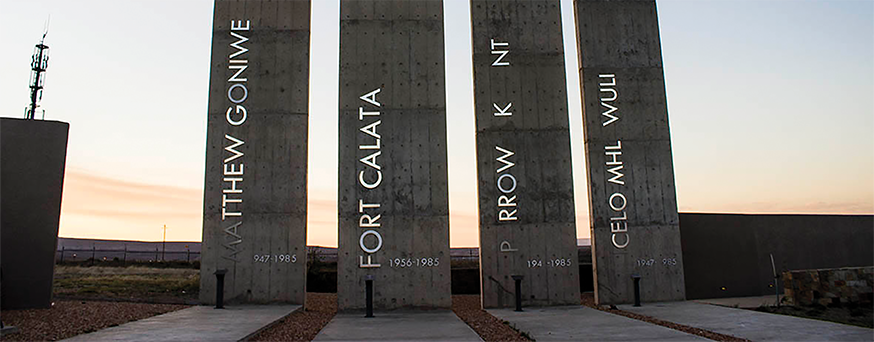Probe: Political interference effectively barred the probe into possible prosecution of the culprits.
By Monk Nkomo
After failing for almost 25 years to prosecute several apartheid-era security branch police officers who orchestrated the brutal murders of scores of anti-apartheid activists, the government has at last launched an inquiry to determine why the victims’ families were denied the justice they deserved.
With their pleas having fallen on deaf ears for decades, these families had to ultimately turn to the Pretoria High Court in 2021 to compel the National Prosecutions Authority (NPA) and the South African Police Services (SAPS) to finalise their investigations and make a decision on whether to prosecute the surviving persons including security police officers who were denied amnesty and implicated in these killings.
About 23 families, including those of the Cradock Four – Fort Calata, Matthew Goniwe, Sicelo Mhlauli and Sparrow Mkonto – fought relentlessly for the NPA and SAPS to implement recommendations of the Truth and Reconciliation Commission’s Amnesty Committee to act against those implicated in the apartheid – era murders of political activists.
Their quest for justice could be fulfilled 15 years after the damning claims – deposed in an affidavit by former National Director of Public Prosecutions, Vusumzi Pikoli – that there was political interference that effectively barred or delayed the investigations and possible prosecution of TRC cases. These included the kidnapping, assault and murder of Nokuthula Simelane, an ANC activist who disappeared without trace in 1983 and is believed to have been murdered by security police.
After struggling for truth and justice for almost 25 years, President Cyril Ramaphosa recently appointed a Judicial Commission of Inquiry – to be chaired by retired Constitutional Judge, Sisi Khampepe – to investigate allegations by the families of the victims that there had been political interference, suppression and prevention of investigations into apartheid-era cases that were referred to the NPA by the TRC for prosecution.
Justice Khampepe this week announced a further preparatory consultative meeting for those who did not participate in the TRC. She promised that the victims of apartheid – era crimes would find the closure they deserved. Those who wanted to take part in the hearings would be allowed to present their cases.
“Upon full disclosure, the applicants would then receive amnesty for all their crimes. We do not want to make this inquiry adversarial’’.
The Commission has also been charged with making findings, if any, of political interference, and recommendations at the completion of the inquiry. While the inquiry might bring some relief for the families of the murdered political activists, it might not bring the justice they had sought because most of those implicated in the killings have since died, having gone to the grave with the vital information that could have helped the families find closure.
Amongst those who were implicated in the torture and killing of political activists and denied amnesty, was the notorious and most feared security police officer in the Eastern Cape, Gideon Niewoudt. He was involved in :
• the torture and murder Black Consciousness Movement leader, Steve Biko,
• abduction, torture and murder of Siphiwo Mthimkhulu and Topsy Madaka, who were members of the Congress of South African Students,
• abduction assaulting and murder of anti-apartheid activists Qaqawuli Godolozi, Champion Galela and Sipho Hashe , who were members of the Port Elizabeth Civic Organization ( PEBCO) in 1985.
Niewoudt was sentenced to 20 years in prison in 1996 for the murder of three police officers and a police informer he had killed in a car bomb for secretly joining the ANC. He died of lung cancer in August 2005. At the time of his death, he was awaiting the outcome of his amnesty application for the four murders.
One of the last surviving police officers involved in the torture and killing of political activists, was Hermanus Barend du Plessis, a key suspect in the brutal killing of the Cradock Four. He was the Security Branch Commander for Black areas in the Eastern Cape during the 1980s .
The TRC’s Amnesty Committee found him responsible for the murders of Goniwe, Calata, Mkonto and Mhlauli. In December 1999, he was also denied amnesty for the murders of the PEBCO Three- Godolozi, Galela and Hashe.
Other witnesses who might have shed light regarding these killings, and have since died, included former South African President, FW De Klerk, former national police Commissioner, Johan van der Merwe, former minister of Law and Order, Adriaan Vlok and former Security Branch Head in Cradock, Col. Eric Winter.
Judge Khampepe has stressed that the inquiry would adopt a more sympathetic, engaging and empowering approach. All interested persons and institutions would be invited to a pre-hearing meeting, as it was in the interest of justice for the victims and their families to find closure.
After more than two decades of waiting for justice and closure, the families of the victims are expected to finally know the truth including reasons for the mysterious disappearance of the docket relating to the Cradock Four in 2013 and the long delay in apprehending and prosecuting those involved in the callous crimes.
The families of the apartheid victims including the Cradock Four, has meanwhile, filed a R167 million lawsuit for constitutional damages against President Ramaphosa and the South African government . They submitted that the delays in prosecuting those implicated led to deaths of most of the accused and this resulted in the violation of their rights. They submitted that the R167 million would fund further investigations, litigation, memorials and public education.































